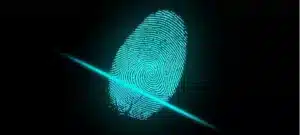The Vanishing Act: A Professional’s Guide to Finding a Stolen Vehicle
In the world of private investigations, we often see it: the sinking feeling of walking up to an empty parking space where your vehicle should be. The shock, the anger, and the immediate wave of questions can be overwhelming. Vehicle theft is a significant issue across the United States, and understanding the right steps to take can dramatically increase the chances of a successful recovery.
According to the latest data from the National Insurance Crime Bureau (NICB), while vehicle thefts decreased significantly in 2024, a total of 895,956 vehicles were still reported stolen. That’s nearly one vehicle stolen every 35 seconds. While the national recovery rate for stolen vehicles is promising, with the NICB reporting that over 85% of stolen vehicles are eventually recovered, the initial hours and days after a theft are critical.
This guide will provide you with a professional framework for action, drawing on industry best practices and insights from the world of private investigation.
Immediate Action: The First 48 Hours are Crucial
What you do in the immediate aftermath of a vehicle theft can be the difference between a swift recovery and a permanent loss. Time is of the essence.
1. Confirm the Theft and Contact Law Enforcement Immediately: Before assuming the worst, take a moment to confirm that your vehicle hasn’t been towed or repossessed. Check for any signs or contact numbers in the vicinity where you were parked. Once you are certain your vehicle has been stolen, your first call should be to the police.
When you file a police report, be prepared to provide the following information:
- Your vehicle’s year, make, model, and color.
- The license plate number.
- The Vehicle Identification Number (VIN). You can typically find this on your vehicle registration or insurance card.
- Any distinguishing features, such as dents, scratches, or aftermarket modifications.
- The date, time, and last known location of your vehicle.
- Information about any GPS tracking device in the vehicle.
Obtain a copy of the police report and the case number. This will be essential for your insurance claim and any further investigative efforts.
2. Notify Your Insurance Company: Your next call should be to your insurance provider. Inform them of the theft and provide them with the police report number. Comprehensive auto insurance policies typically cover theft of the vehicle. Your insurance company will guide you through its claims process. It is vital to report the theft promptly to avoid any potential liability issues if your car is used in a crime.
3. Leverage Technology: If your vehicle is equipped with a GPS tracking system, such as OnStar, LoJack, or a manufacturer-specific service, contact the provider immediately after notifying the police. They can often pinpoint the vehicle’s real-time location, significantly aiding law enforcement’s recovery efforts.
The Role of the Private Investigator: Going Beyond the Badge
While law enforcement plays a primary role in investigating vehicle theft, their resources are often stretched thin. A private investigator can provide a dedicated and specialized approach to locating your stolen vehicle, especially in complex cases or when official investigations have stalled.
How a Private Investigator Can Help:
- Dedicated Time and Resources: Unlike law enforcement agencies that must prioritize a high volume of cases, a private investigator can dedicate their full attention to your specific case.
- Specialized Databases: Private investigators have access to professional-grade databases that are not available to the general public. These databases can provide a wealth of information, including:
- License Plate Recognition (LPR) Data: PIs can access vast networks of LPR cameras that capture images of license plates, timestamps, and GPS coordinates. This can help track a vehicle’s movements.
- Vehicle Sighting Databases: Services like Delvepoint and IRBsearch compile data from various sources, including private and commercial vehicles equipped with cameras, to create a historical “sighting” record of a vehicle’s location.
- Comprehensive Public Records: Investigators can thoroughly examine public records to uncover connections and potential leads that may not be immediately apparent.
- Field Investigation and Surveillance: A private investigator can conduct physical surveillance at locations of interest, interview potential witnesses, and canvas areas where the vehicle may have been taken or abandoned.
- Liaison with Law Enforcement: A skilled PI can act as a bridge between you and the police, providing them with new leads and information that can reignite their investigation.
Publicly Available Resources: Your Own Investigative Tools
While a private investigator offers a significant advantage, there are also resources available to the public that can aid in the search:
- National Insurance Crime Bureau (NICB) VINCheck: The NICB provides a free online tool called VINCheck. You can enter a vehicle’s VIN to see if it has been reported as stolen by a participating NICB member insurance company.
- National Motor Vehicle Title Information System (NMVTIS): This U.S. Department of Justice system NMVTIS provides information on a vehicle’s title, odometer readings, and certain historical events, including if it has been reported as stolen.
- Online Marketplaces and Forums: It is worth monitoring online marketplaces, such as Craigslist, Facebook Marketplace, and eBay, for your vehicle or its parts. Be cautious and report any potential findings to the police rather than attempting to recover the vehicle yourself.
The theft of a vehicle is a violation of your property and a breach of your peace of mind. By acting swiftly, staying organized, and leveraging all available resources, including the specialized skills of a private investigator, you can significantly improve the odds of a positive outcome. Remember, in the world of investigations, persistence and information are your most powerful allies.






